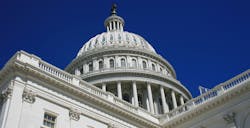The White House Forum on Antibiotic Stewardship impacts labs across the U.S.
It was an honor to be invited to join the first White House Forum on Antibiotic Stewardship on June 2, 2015. The Forum provided an unprecedented opportunity to collaborate with executive leaders, medical strategists, healthcare visionaries, nursing policymakers, pharmacy planners, and key physicians on ways to combat this serious issue that threatens the health of our population. This opportunity allowed me to establish new contacts, reinforce old alliances, and try to find synergies among this diverse but related group of attendees.
With more than 150 organizations represented, the Forum sent a strong message that the commitment of multiple players and stakeholders is key to achieving antibiotic stewardship. The United States government has appropriately acknowledged that no single entity can successfully tackle the problem of antimicrobial resistance and stewardship without full dedication from all of the global players. As I participated in the day’s sessions, this fact underlined the importance of collaboration and personal responsibility. Each of us has an important role to play in curbing antibiotic resistance and promoting the appropriate use of antibiotics. To succeed in reducing this public health threat, collaboration and innovation from every type of stakeholder are truly essential.
The White House Forum on Antibiotic Stewardship and the national strategy to Combat Antibiotic-Resistance Bacteria (CARB) have succeeded in further raising awareness on the topic of antibiotic resistance. These two initiatives have helped to make antibiotic resistance a national priority, and should lead to accelerated efforts to curb this substantial threat.
As a result of this national push, we hope to see an increase in new technological advancements and tests from the diagnostics industry; new antibiotic use protocols in the food animal production industry; and antibiotic stewardship program implementation across American healthcare facilities. Global real-time antibiotic surveillance networks, nucleic acid-based research, and better diagnostics that can detect important bacterial infections and multiple antibiotic resistance genes directly and quickly from a sample may be part of the long-term answer and align specifically with President Obama’s CARB plan. We will certainly see more developments of this sort as organizations move to support the Administration’s efforts.
The outcomes of the Forum are likely to impact the overall healthcare system, since the CARB plan’s ambitious five-year goals include reducing antibiotic resistance by establishing and enhancing antimicrobial stewardship programs across all healthcare settings; reducing inappropriate antibiotic use by 50 percent in outpatient settings and by 20 percent in inpatient settings; monitoring and reporting regionally important multi-drug resistant organisms in every state; and eliminating the use of medically important antibiotics in America’s meat supply.
With that in mind, six important actions have emerged as strategies to help curb antibiotic resistance:
- Obtaining surveillance data to determine and quantify the amount, type, and extent of antibiotic resistance in an area of interest such as a healthcare facility or geographic region
- Avoiding prescribing antibiotics when unnecessary
- Creating and supporting antibiotic stewardship programs in all healthcare facilities
- Performing appropriate diagnostic tests to provide information that will allow adjustment of the antibiotics to the narrowest spectrum choice which is clinically effective or to avoid antibiotics completely when testing demonstrates they are not indicated
- Avoiding the use of antibiotics in food sources, unless necessary to treat disease, in order to limit the emergence of resistance at the food source or at the time of consumer ingestion
- Creating new therapies for bacterial infections, including non-antibiotic options.
We should not underestimate the meaningful and important part that each of us plays in helping to curb antibiotic-resistant infections. They are not “just” a public health problem; they are indeed, as President Obama has said, “a threat to our national security.”





